Filter by
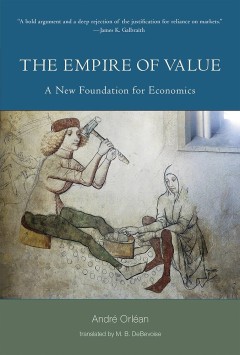
The Empire of Value: A New Foundation for Economics
Translation of the author's L'empire de la valeur."With the advent of the 2007-2008 financial crisis, the economics profession itself entered into a crisis of legitimacy from which it has yet to emerge. Despite the obviousness of their failures, however, economists continue to rely on the same methods and to proceed from the same underlying assumptions. Andr?e Orl?ean challenges the neoclassica…
- Edition
- -
- ISBN/ISSN
- 9780262323901
- Collation
- 1 online resource (x, 350 pages) :illustrations
- Series Title
- -
- Call Number
- -
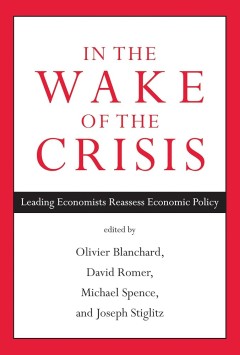
In the Wake of the Crisis: Leading Economists Reassess Economic Policy
Conference proceedings.In 2011, the International Monetary Fund invited prominent economists and economic policy makers to consider the brave new world of the post-crisis global economy. The result is a book that captures the state of macroeconomic thinking at a transformational moment. The crisis and the weak recovery that has followed raise fundamental questions concerning macroeconomics and …
- Edition
- -
- ISBN/ISSN
- 9780262301831
- Collation
- 1 online resource (x, 239 pages) :illustrations
- Series Title
- -
- Call Number
- -

What Have We Learned?: Macroeconomic Policy after the Crisis
Since 2008, economic policymakers and researchers have occupied a brave new economic world. Previous consensuses have been upended, former assumptions have been cast into doubt, and new approaches have yet to stand the test of time. Policymakers have been forced to improvise and researchers to rethink basic theory. George Akerlof, Nobel Laureate and one of this volume's editors, compares the cr…
- Edition
- -
- ISBN/ISSN
- 9780262323444
- Collation
- 1 online resource (vii, 359 pages) :illustrations
- Series Title
- -
- Call Number
- -
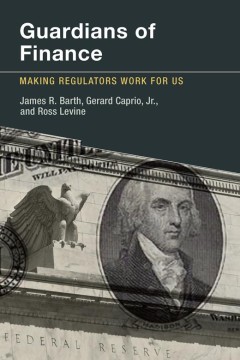
Guardians of finance :making regulators work for us
"The recent financial crisis was an accident, a 'perfect storm' fueled by an unforeseeable confluence of events that unfortunately combined to bring down the global financial systems. And policy makers? They did everything they could, given their limited authority. It was all a terrible, unavoidable accident. Or at least this is the story told and retold by a chorus of luminaries that includes …
- Edition
- -
- ISBN/ISSN
- 9780262301527
- Collation
- 1 online resource (xiii, 280 pages)
- Series Title
- -
- Call Number
- -
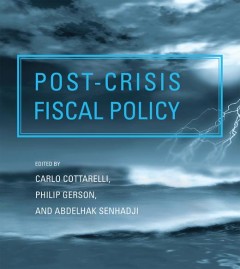
Post-crisis fiscal policy
Fiscal policy makers have faced an extraordinarily challenging environment over the last few years. At the outset of the global financial crisis, the International Monetary Fund (IMF) for the first time advocated a fiscal expansion across all countries able to afford it, a seeming departure from the long-held consensus among economists that monetary policy rather than fiscal policy was the appr…
- Edition
- -
- ISBN/ISSN
- 9780262324113
- Collation
- 1 online resource (vii, 562 pages) :illustrations
- Series Title
- -
- Call Number
- -
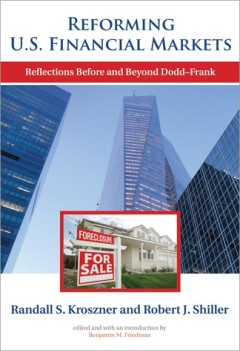
Reforming U.S. financial markets :reflections before and beyond Dodd-Frank
Papers and discussions presented at the fifth Alvin Hansen Symposium on Public Policy, held at Harvard University on April 30, 2009."Over the last few years, the financial sector has experienced its worst crisis since the 1930s. The collapse of major firms, the decline in asset values, the interruption of credit flows, the loss of confidence in firms and credit market instruments, the intervent…
- Edition
- -
- ISBN/ISSN
- 9780262295956
- Collation
- 1 online resource (xvii, 152 pages)
- Series Title
- -
- Call Number
- -
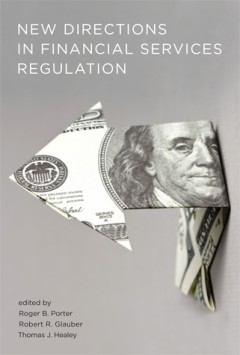
New Directions in Financial Services Regulation
This title grows out of a conference hosted by the Mossavar-Rahmani Center for Business and Government at Harvard's Kennedy School of Government in October 2009, and the book reflects the dynamic give-and-take of the event.OCLC-licensed vendor bibliographic record.
- Edition
- -
- ISBN/ISSN
- 9780262295789
- Collation
- 1 online resource (ix, 227 pages)
- Series Title
- -
- Call Number
- -
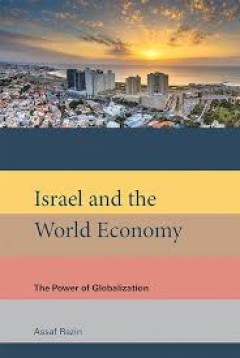
Israel and the world economy :the power of globalization
This book provides rigorous analysis of some of the major episodes during Israel's economic transition and spells out, empirically, how globalization played a crucial role in advancing Israel's economic progress. Economists and policy makers can gain insights as to how a globalized economy can take advantage of international trade, labor mobility, its international financial links, while at the…
- Edition
- -
- ISBN/ISSN
- 9780262344234
- Collation
- 1 online resource
- Series Title
- -
- Call Number
- -
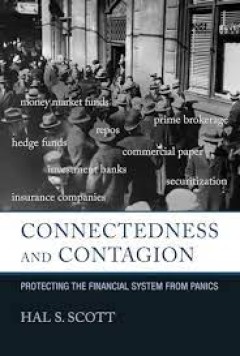
Connectedness and contagion protecting the financial system from panics
"The Dodd-Frank Act of 2010 was intended to reform financial policies in order to prevent another massive crisis such as the financial meltdown of 2008. Dodd-Frank is largely premised on the diagnosis that connectedness was the major problem in that crisis -- that is, that financial institutions were overexposed to one another, resulting in a possible chain reaction of failures. In this book, H…
- Edition
- -
- ISBN/ISSN
- 9780262332156
- Collation
- 1 online resource (xxi, 416 pages)
- Series Title
- -
- Call Number
- -

The great recession :lessons for central bankers
Conference proceedings.Here, experts assess the role of central banks in responding to the recent financial crisis and in preventing future crises. The contributors focus on monetary policy, the new area of macroprudential policy, and issues of exchange rates, capital flows, and banking and financial markets.OCLC-licensed vendor bibliographic record.
- Edition
- -
- ISBN/ISSN
- 9781283938853
- Collation
- 1 online resource (xii, 380 pages) :illustrations
- Series Title
- -
- Call Number
- -
 Computer Science, Information & General Works
Computer Science, Information & General Works  Philosophy & Psychology
Philosophy & Psychology  Religion
Religion  Social Sciences
Social Sciences  Language
Language  Pure Science
Pure Science  Applied Sciences
Applied Sciences  Art & Recreation
Art & Recreation  Literature
Literature  History & Geography
History & Geography